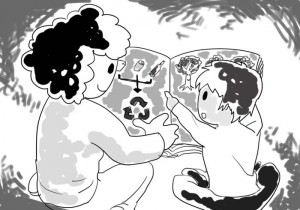Sustainable curriculum is a must
USC often gets flak for not being among the most environmentally-friendly institutions. But what people don’t seem to notice is the university’s capacity to effect environmental change in the realm students and faculty come from all over the world to benefit from in the first place — education.
The Education and Environment Initiative, which pioneered a sustainability-minded curriculum finalized by the California Environmental Protection Agency more than a year ago, is finally picking up steam in the Golden State.
“It’s giving a new angle to material that’s already being taught in our program,” Ari Engelberg, chief executive officer of Bright Star Schools, told the Los Angeles Times. “We’re not an environmental charter, but the curriculum resonated with us because we do so much in the way of outdoor experiences for our students.”
That doesn’t sound too dissimilar to a university like USC. If the state’s cash-strapped public school system can integrate the initiative into its curriculum, why can’t we?
To be clear: I don’t mean literally use the same EEI Curriculum adopted by 100 other California schools this year — the curriculum is intended for K-12 classrooms and was clearly not designed with an institution such as USC in mind. But that doesn’t preclude the university from borrowing from the EEI’s methods of implementing its curriculum, or points from the curriculum itself.
The EEI didn’t work its way into the California school system alone; it did so in conjunction with the California Environmental Protection Agency, the State Board of Education, the California Natural Resources Agency and a host of others, including various non-governmental organizations.
Should USC elect to step up its sustainability game and move toward a greener curriculum, the first move would be reaching out to those institutions and others similarly situated to refine the new course material and help the university acclimate to it.
The EEI curriculum is even available online for free, if USC was ever struck by the urge to base an earth sciences course off a grade-school agenda, which, as anyone who has ever taken GEOL107 can attest, is not the most improbable thing. The point is, the resources are out there for USC to make its curriculum much greener than it is right now.
To be fair, the Viterbi School of Engineering does offer a masters program in green technologies, but such a course is by definition geared only toward graduate students who are probably looking to pursue a career in the field, not at the general undergraduate population.
Although no one is advocating shoving an environmental angle into every course on campus, certain areas of USC’s curriculum (read: general education) do seem primed for some EEI-like updates.
We can, as Engelberg said, graft key sustainable perspectives onto relevant course material, or even create new courses entirely.
If web registration presents us with such bizarrely-titled general education options as “Changing Family Forms,” “In a Word” and “Love, Marriage and the Experiences of Being a Wife,” there’s probably a niche for a few sustainability-based courses, especially in the Scientific Inquiry category.
In the best case scenario, the EEI curriculum is projected to reach 6.2 million students in California, according to the Times. USC, with all its financial and creative resources, can at least reach its own 35,000.
Kastalia Medrano is a sophomore majoring in print and digital journalism and an associate managing editor for the Daily Trojan. Her column, “Green Piece,” runs Tuesdays.


Sounds like a great idea for a course to satisfy a science GE requirement. The ever-evolving technology can be discussed, along with the ever-changing regulatory framework.
Maybe folks from the Stevens Institute or the Green Symposium can help out.
There are other undergraduate programs involved “green” technologies available for engineering students, including a class with professor Alice Parker in the fall. They are not just for graduates.